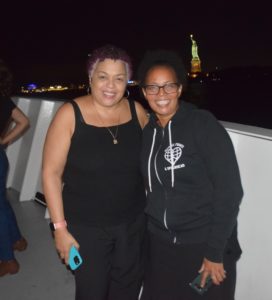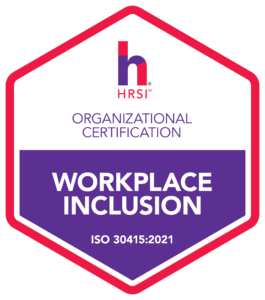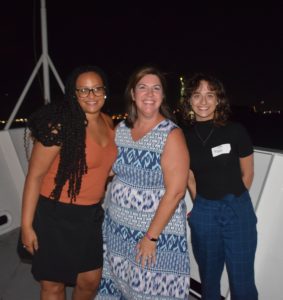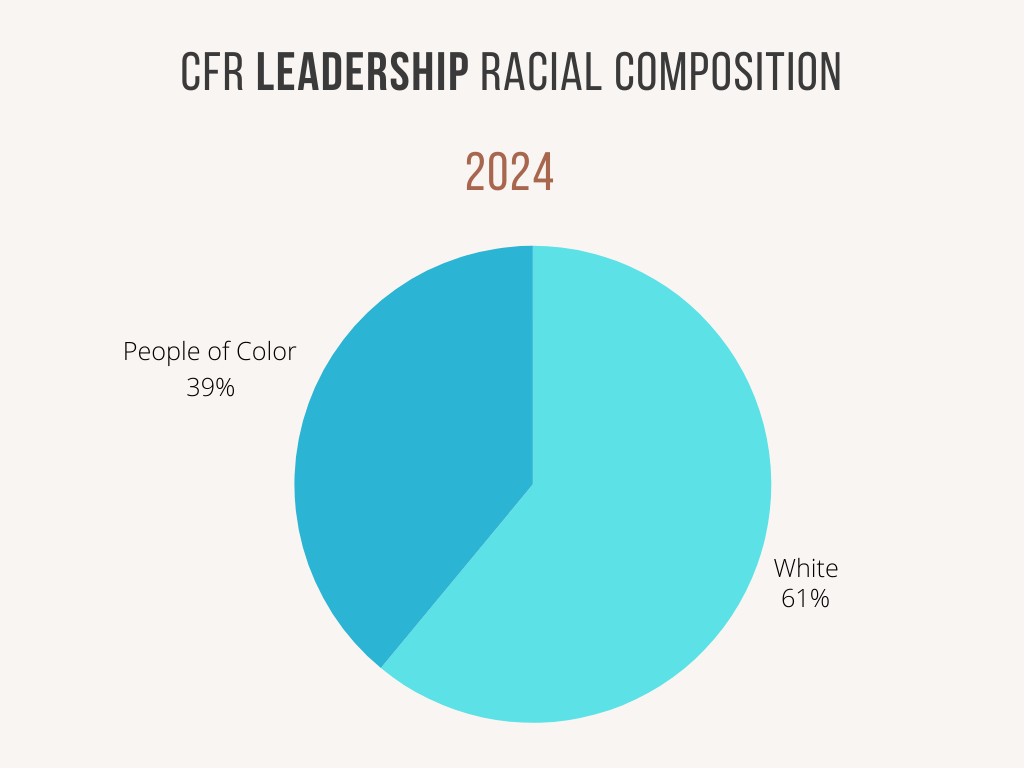Diversity, Equity, Inclusion & Belonging (DEIB) at CFR
“Inclusion is not a matter of political correctness. It is the key to growth.” –Jesse Jackson
“As someone who is often a minority in any given space, it’s important that I get to work for an organization that is committed to helping all of its employees feel like we belong. CFR allows me to speak up freely on behalf of myself and our clients without ever looking over my shoulder. Our leadership is deeply committed to combating systemic racism both internally and externally, and I’m proud to be a member of our DEIB committee as we work to become an anti-racist organization.” –Sandeep Kandhari, Litigation Supervisor – CFR Youth Defense Practice
 For over two decades, the Center for Family Representation (CFR) has provided legal and social work services to vulnerable New York City families at risk of separation through the foster system or the youth system in Queens, Manhattan, Staten Island, and the Bronx. CFR’s offices are situated on Munsee Lenape, Wappinger, Matinecock, Rockaway, Maspeth and Canarsee land.
For over two decades, the Center for Family Representation (CFR) has provided legal and social work services to vulnerable New York City families at risk of separation through the foster system or the youth system in Queens, Manhattan, Staten Island, and the Bronx. CFR’s offices are situated on Munsee Lenape, Wappinger, Matinecock, Rockaway, Maspeth and Canarsee land.
Living by our belief that every family matters, we have fought to tackle the racist and oppressive systems of family policing – which primarily targets Black and Brown communities – with teams of attorneys, social workers and staff who themselves were impacted by these systems. CFR has more system-impacted parents on staff than any other family defender agency in the city. Just as important, we’ve committed to internal work around Anti-Racism and Diversity, Equity, Inclusion and Belonging (DEIB).
Beginning with our work with a DEI consultant in 2019, we created spaces for Black (B) and People of Color (POC) staff to connect and challenge areas within our organization and the larger system that have been affected by white supremacy and racial inequality. From this 2019 B & POC Affinity Group, CFR committed its energies to establishing DEI purpose, goals and objectives, which have developed into our Guiding Stars and Four Pillars.
Guiding Stars
Hold ourselves and CFR accountable to linking all DEIB priorities, goals and activities to the needs of clients.
Be transparent: develop regular communication routines on anti-racist work and activity at CFR. These routines should be for all of CFR, and where appropriate for external stakeholders and supporters.
Four Pillars
Building Bridges – Create collaborative and interconnected experiences for stakeholders around anti-racist and inclusion work
Education – Provide relevant and intentional training and resources focused on anti-racist and inclusion work
Staff Engagement – Ensure ownership and engagement with staff stakeholders of anti-racist and inclusion work
Policy – Institutionalize practices, policies and systems with an intentional focus on anti-racist and inclusion work
CFR Achieves Organizational Certification in Workplace Inclusion

In 2024, CFR earned an organizational certification in Workplace Inclusion proving that it not only is a global leader in the nonprofit industry but also adheres to globally accepted D&I standards.
Through certification from the Human Resource Standards Institute (HRSI), CFR verifies that its commitment to continual improvement in Human Resources (HR) and D&I is supported with action in the workplace. Learn more.
Our Values in Action
 CFR’s DEIB workgroup, composed of senior, supervisory and director-level staff, meets bi-monthly to address the need for training, HR and policy routines focused on DEIB. CFR’s COO (who directs HR) co-facilitates this group with four staff who each attended an intensive, six-week training on facilitation of multi-racial DEIB conversations.
CFR’s DEIB workgroup, composed of senior, supervisory and director-level staff, meets bi-monthly to address the need for training, HR and policy routines focused on DEIB. CFR’s COO (who directs HR) co-facilitates this group with four staff who each attended an intensive, six-week training on facilitation of multi-racial DEIB conversations.
Since 2021, members of this group have co-chaired four sub-committees open to all CFR staff:
- The DEIB Statements and Definitions Group, which is currently working on proposed definitions of concepts like “white space” and “micro-aggression” that will eventually be used in all communications and policies
- The DEIB Training Group, which identifies needed training and explores options to provide it for all staff
- The Presentations and Celebrations Group, which plans presentations and celebrations with both outside speakers and staff presenters to honor race, ethnicity and heritage
- The “This is Not Okay” Group, which is designed to develop changes we can make in our practice to combat racial harm experienced by clients and staff and caused by external stakeholders, like caseworkers, prosecutors and judges
In 2023, CFR launched Affinity Groups for AANHPI people, Black women, men, and white people. CFR Affinity Groups provide individuals with similar lived experiences and identities psychologically safe spaces to come together for sharing perspectives, navigating workplace and societal impacts on their identities and building community.
Allies are also welcomed to these groups to come alongside, elevate, support and uplift fellow CFRians in spaces where their lived experiences and identities are diminished, harmed or targeted.
- CFR’s AANHPI Affinity Group allows AANHPI people to occupy space without seeking or asking for permission to do so. Members of this group have come together to share stories about their identities and cultures, and we also hope to continue the conversations around the complex dynamics of representing Black and Brown parents as People of Color.
- The Black Woman Affinity Group was created to develop a safe/brave space for Black women at CFR. Black women at CFR represent people who look like them and could be their own family members, which can be intense and triggering. This group is a space where Black women can arrive as their authentic selves, helping to lay the foundation for sisterhood at CFR.
- The Male Affinity Group creates space for men to create dialogue and social opportunities to bond and build community. The group’s goal is to ensure that male-identified employees experience a greater sense of engagement and belonging.
- CFR’s White Affinity Group offers an opportunity for white people to see themselves as a race with cultural norms, values, and behaviors (white dominant culture) that are considered normative in most organizations. Members of this group genuinely and compassionately study together to learn about how white culture often inadvertently creates stress and harm for People of Color. Ultimately, this group seeks to create interracial dialogue and institutional culture change.
-
The Parenting and Caregivers’ Resiliency Group provides a supportive space for CFRians who are parents and/or caregivers, to help them navigate the complexities of parenting, work, and the emotional toll of our jobs. Facilitator Lisa Martin creates an engaging space and brings in healing, organizing, and parenting strategies to help participants feel more equipped at home and work.
-
The South Asian and Middle Eastern Affinity Group provides a safe space for CFRians who share a common South Asian or Middle Eastern ethnicity as well as allies of these ethnic groups. This space is meant for CFRians to come together and speak about issues that are unique to this group and dissect the parallels of how these issues and identities present in the work we do.
- The Hispanic/Latine Affinity Group offers Hispanic/Latine- identifying individuals a space to acknowledge and discuss both shared and distinct experiences among the Latinx diaspora in the professional world and beyond. Discussion topics will be decided by group members, but may include conversations around unity, disconnect, and building solidarity amongst each other and Non-Hispanic/Latinx people.
Here’s a selection of additional DEIB activities offered at CFR:
- Weekly drop-in DEIB Conversations Zoom space for staff members to discuss issues ranging from current events to internal dynamics at CFR.
- Bi-monthly discussion groups for B and POC senior staff, supervisors and directors to provide respite and opportunities to build resiliency, as well as to enable CFR leaders to discuss needed changes at CFR.
- Anti-Racist Work at CFR training for new staff
- Black History Month luncheons, happy hours and presentations
- Juneteenth town halls
- Hispanic American Month presentations
- Asian American Native Hawaiian Pacific Islander (AANHPI) Heritage Month presentations
- LGBTQIA+ allyship workshops
- Pride Month happy hour
- Holocaust Remembrance presentations
- Ramadan and Eid al-Fitr presentations
Our Statements
While CFR’s dedicated policy staff fight for system change, we also issue public statements to educate our supporters and to demonstrate to staff and policy makers that we stand in support of all those who are demonized and “othered” in the city, state and country.
CFR stands in support of the Black community and against the racism and brutality that rob far too many Black people of their lives.
- Statement on the Fatal Police Shooting of Jayland Walker
- Statement in Response to the Racially-Motivated Mass Shooting in Buffalo, New York
- George Floyd Should Still Be Alive
- Black Lives Matter
Our Asian American clients and staff members, Asian American essential workers and Asian American communities deserve to live without fear of racially-motivated discrimination and violence.
- Statement on Asian American Native Hawaiian Pacific Islander (AANHPI) Heritage Month
- Anti-Asian Violence 2.0
- Anti-Asian Violence 1.0
All of our statements may be found on the CFR Statements page here.
Staff and Leadership Composition
Our DEIB successes are also reflected in our staff and leadership demographic data. CFR has worked hard to increase and enhance the racial and ethnic makeup of our staff.


Staff Testimonials
“As someone who lives in the intersection of multiple identities, CFR’s intentional commitment, daily investment and hard work towards being an Anti-Racist organization, creates spaces where I am able to bring my whole, authentic self to work each day. CFR is bold and unafraid to pause, reflect, learn and unlearn so it can show up and come alongside our clients, colleagues and partners as we give our all to keep our families together.” – Alicia Williams, Chief Operating Officer
“I have been working at CFR for almost a decade. I am many things that could be excluded from any space. I have seen CFR be intentional in creating a workplace that promotes belonging for our clients and our staff in all spaces. Every day, our staff at all levels trains and works hard to represent clients going through incredibly traumatic experiences in a system founded on racist beliefs. We remain committed to preserving the most natural and strong of all bonds: the bond between a parent and their child. We continue to promote learning of people’s rights and the injustices of the system through a lens that acknowledges the constant surveilling, policing and punishing of Black and Brown people living in poverty.” – Ysmerlyn Murshed, Social Work Supervisor
“It is of utmost importance to me that CFR is committed to exemplifying, encouraging, and embedding inclusion into the organization. It is refreshing to know that our mission is to create a safe space for employees and clients alike. Having awareness, accountability and inclusivity as part of our approach is key in both reunifying our clients’ families and maintaining a healthy workspace for employees. A space where we all feel seen, accepted and respected cultivates success.” – Rosalynn Diaz, Family Advocate
Here at CFR, we are fully and boldly committed to our Anti-Racist and DEIB work. We will continue to hold ourselves accountable to creating external and internal spaces that challenge institutionalized racism and foster a culture of belonging.